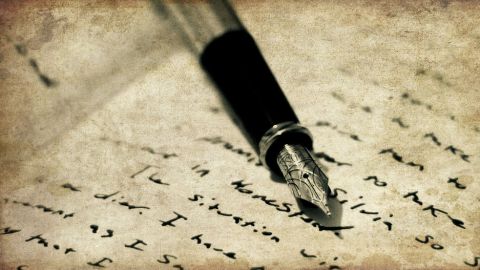The Psychology of Remembering: A Memory Like a Journal

When we remember, what is it that we’re remembering? Do we try to recapture the appearance of a moment, like a photograph or a postcard that shows us a perfect still image of a point in time? Do we try to incorporate motion, a movie reel that we can fast-forward, pause, and rewind at will? Do we concentrate on the feeling and the emotion and let the more visual detail fade back into a secondary background? And whatever we do, how do we get there? Do we rely on a word, a phrase, a sound, a smell, an object? Or do we just say, now is the time to remember, and leave it at that?
Each memory is different
This was a weekend that was filled with memories, and I suspect that for no two people was the process of recollection, the experience of remembering the same. Nor, I think, were the memories that came forward, even for individuals who had been side by side. Because if we’ve learned anything over decades of research into the properties of memory, it’s this: memories are idiosyncratic, they change, and the way we stored them to begin with will affect the way we will remember them later on.
It’s comforting to think that our brain functions much like a camera: we see something, we take a picture, we develop it somewhere in the crevices of our mind, and we can take it out again whenever we want. Or, we can even press the video function and record however many minutes of action we see fit, and then store the media to peruse at a future time. And indeed, for a very, very select few individuals, that seems to be exactly how it works. These people are the super-remembers, who have a condition known as hyperthymesia, an ability to recall the most minute details from any day, on demand. But to date, only six people with the condition have been confirmed. For the rest of us, the picture is quite different.
Memory is like a journal: selective, incomplete, and subject to interpretation
I like to think of it as the analogy between a camera and a journal. Imagine you are walking along when you see something that captures your attention. It can be an object. It can be a person. It can be a scene. An expression on someone’s face. It can be anything at all, so long as you decide it is worthy of note and significant enough for you to want to remember it for the future. You reach for your camera, only to realize you don’t have one with you (and you’ve left your phone at home, too, so no built-in camera is handy). But you do have a pen and paper. So, you decide to write down what you’re seeing so that you’ll remember it for later, maybe to share with someone else, maybe for your own personal benefit.
What do you write down? What features do you think are important enough? What features do you think will be sufficient to trigger your memory and allow you to fill in the rest of the details later? Do you focus on why it captured your attention, or what it made you think of, or just the objective picture before you?
You put something down. Some time later, you revisit it. And perhaps later still, you visit it once more. Chances are, the features you chose to note that first moment, when you didn’t have a camera present, will grow to define the experience for you. Because they are used as memory triggers each time you go back to the scene, they will in time grow larger, more definitive, more important. And those features that you decided were not worth recording will fade in comparison. They may shift; they may grow indistinct; they may disappear altogether until you don’t remember they were there to begin with.
Whatever happens, the memory will change. The shift can be more or less perceptible, more or less important to the essence of the moment, but it will inevitably take place. And more likely than not, it will change in a way that echoes who you are: how you tend to experience the world and events around you, how you tend to fit everything into your own sense of self and perception, how you react to and interact with your environment. Because after all, weren’t those the factors that determined what it was you chose to write down in your journal to begin with?
A camera has a shot at relative objectivity (though as many, like Susan Sontag, would argue, even a camera can never be entirely objective). A journal lacks even that pretense at impartial rendering. It is, first of all, the creation of whoever wrote it, subject to what the author chose to put down—or encode, if we go back to the terms of memory—to begin with and to how he chose to do so: the mode, tone, and nature of the memory trace.
Our memory journals are rich and varied and full of meaning. They are central to our sense of self and to our sense of the world. But whatever they are, they are not and never will be (unless we are one of six) wholly objective or entirely stable. They are inherently ours and inherently flawed, in the sense of failing to have captured with complete accuracy whatever it is they were trying to memorialize. And that is something we should never forget.
If you’d like to receive information on new posts and other updates, follow Maria on Twitter @mkonnikova
[photo credit: Creative Commons, from JoelMontes flickr photostream]





